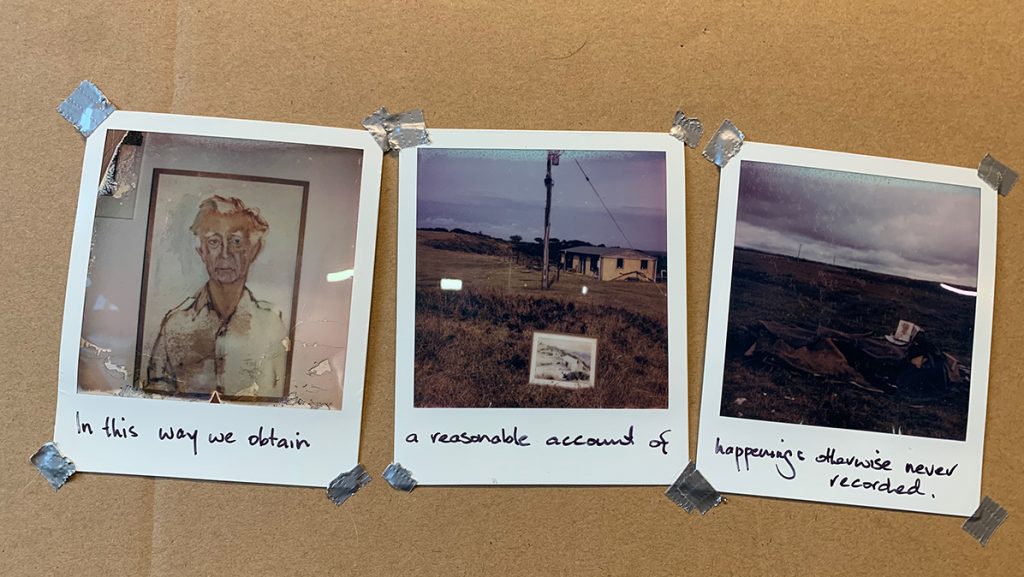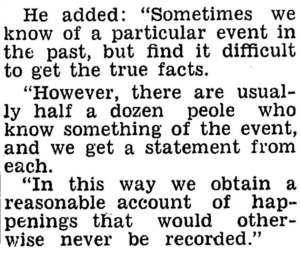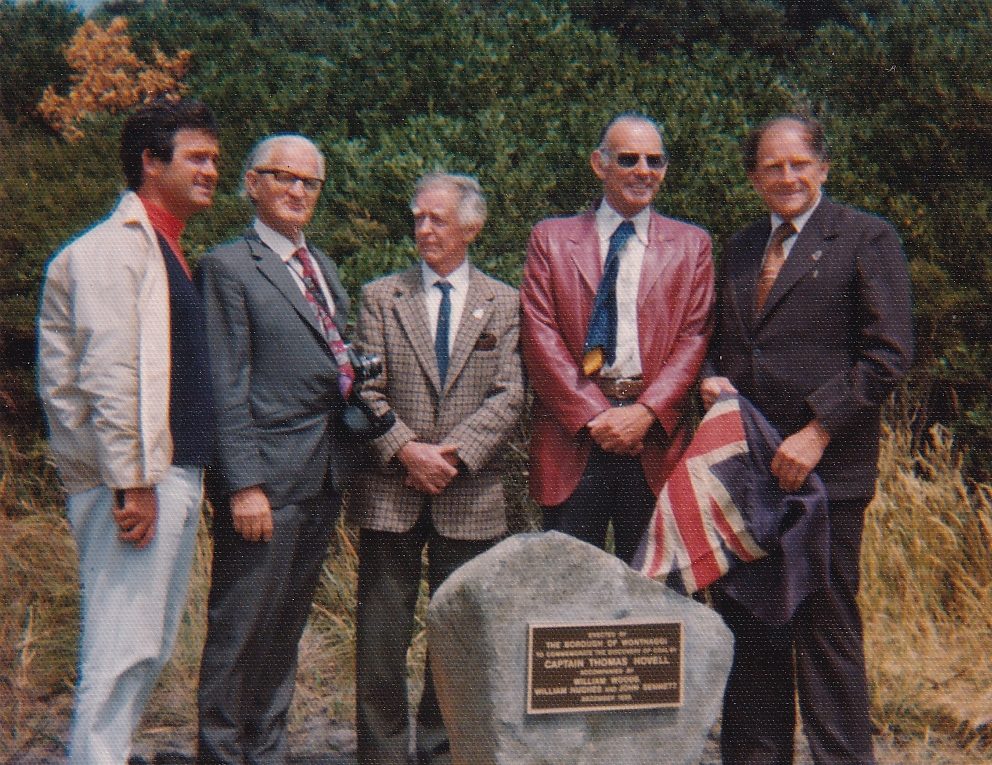The rationale for Otherwise Unrecounted
 After a day spent browsing cluttered filing cabinets and listening to snippets of oral histories in the Wonthaggi Historical Society (W&DHS) archive I happened across a 1960 report from the then local newspaper, The Powlett Express, which recounted a speech delivered by my grandfather, Arthur Quilford to the local Rotary club. The headline offered a crass and overtly racist editorial grab for attention but the sentiments expressed by my grandfather – an elderly white Welsh immigrant and former coal miner talking nearly sixty years ago – heartened me. Arthur spoke of a desire to learn about the local area and its history, focusing specifically on the Aboriginal family structures and habits of the Bunurong people. What really leapt off the page was his remark about his personal approach to documenting history:
After a day spent browsing cluttered filing cabinets and listening to snippets of oral histories in the Wonthaggi Historical Society (W&DHS) archive I happened across a 1960 report from the then local newspaper, The Powlett Express, which recounted a speech delivered by my grandfather, Arthur Quilford to the local Rotary club. The headline offered a crass and overtly racist editorial grab for attention but the sentiments expressed by my grandfather – an elderly white Welsh immigrant and former coal miner talking nearly sixty years ago – heartened me. Arthur spoke of a desire to learn about the local area and its history, focusing specifically on the Aboriginal family structures and habits of the Bunurong people. What really leapt off the page was his remark about his personal approach to documenting history:

Arthur Quilford (interviewed by Joe Chambers) discussing that Wonthaggi was once perceived to have no meaningful history. [Wonthaggi & District Historical Society, Oral History Recording OH-0013A, recorded 17th October 1985] [2]
While I'm not convinced on the viability of any search for hard and fast 'historical truth', I do want to know more about the richly eclectic, overlooked and contested histories of this place. My grandparents founded the Wonthaggi Historical Society with some friends in the late 1950s after concluding that the history of town and the surrounding area – which has come to be known as the Bunurong Coast – was worth telling. My mother and father continue the family's involvement in with the group, Fay is the President and Jim is Treasurer. I too have found myself spending a lot of time there, exploring the archives and artifacts. That time continually shows me that plenty of the happenings from this place are worth telling.
That same time also continually reminds me of the complexity of any historical endevour. One of the other volunteers at the Historical Society has been diligently cataloguing cabinets full of unsorted documents. In a recent chat, she admitted that she was making the process up as she went. I laughed knowingly. Her admission reflects my experiences working with archives and with the stories that flows from that. As Ross Gibson suggests, “Imagination is needed when one encounters evidence that is in smithereens. I try to keep this in mind when confronted with the dishevelled scenes and archives and collections that are so representative of contemporary Australia”[1]. As important as the contents in of the Wonthaggi local history archive are, it is its people, its associations, and their stories that make it special. It’s both orderly and completely disorganised. Personal and subjective, it’s an ecosystem of memory, artifacts, personalities and documents.
Gibson’s quote comes to mind when I reflect on my grandfather’s comments about the history of Wonthaggi. “In the power station you had a lot of time to waste on thinking,” he said. He went on to admit that he'd allocated quite a lot of that thinking on the history of Wonthaggi . People had told him from the time he first arrived that a history didn’t exist prior to the founding of the State Coal Mine – a 1909 government enterprise that led to the founding of the town. Arthur concluded that attitude was a "load of rot" and that the history of the town and the surrounding area was a local history worth telling.
In response to this urge, Arthur, my grandmother Nell, and their contemporaries established the Wonthaggi Historical Society to document and preserve that history. Importantly, they did it to produce accounts of happenings that would otherwise pass unrecorded and untold.
The Otherwise Unrecounted project is my personal response to this sentiment. It offers a series of accounts of, and reflections on, happenings from Wonthaggi and the Bunurong Coast that would otherwise pass unrecorded and untold. It is a suite of written, photographic and multimedia reflections on the fragments, echoes and titbits that have grabbed my attention during my time spent in the archives and landscapes in this place.
[1] Gibson, R., 2015, Memoryscopes, UWA Press, p.16.
[2] WH&DS oral interview with Arthur Quilford, recorded 17/10/1985, see 1:21:00.
